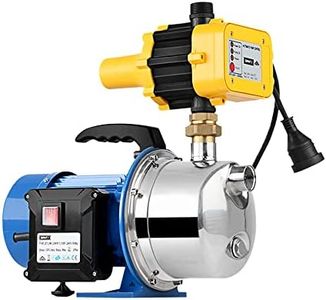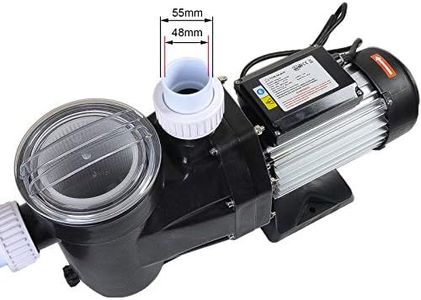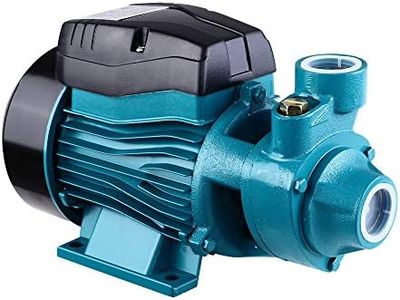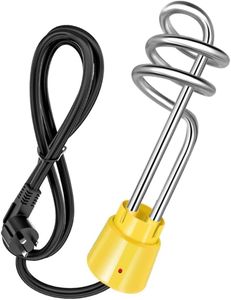We Use CookiesWe use cookies to enhance the security, performance,
functionality and for analytical and promotional activities. By continuing to browse this site you
are agreeing to our privacy policy
4 Best Electric Pool Heat Pump
From leading brands and best sellers available on the web.Buying Guide for the Best Electric Pool Heat Pump
Choosing the right electric pool heat pump is important to keep your pool at a comfortable temperature for swimming throughout a longer season. While there are many different models on the market, understanding the main specifications will help guide you to the product that best matches your pool size, climate, and how you plan to use your pool. By focusing on the specifications that matter most to your needs, you'll have a much better chance of enjoying reliable and efficient heating.Heating Capacity (BTU output)Heating capacity, typically measured in British Thermal Units (BTUs), tells you how much heat the pump can provide to your pool over a certain period. This is crucial because a pump that's too small for your pool will struggle to maintain the desired temperature, while one that's too large might waste energy. Small pools generally need less than 50,000 BTUs, medium pools might require between 50,000 and 100,000 BTUs, and large or commercial pools may need over 100,000 BTUs. To choose the right capacity, consider your pool's size (in gallons or surface area), the typical outdoor temperatures in your area, and how quickly you want your water to heat up. For casual, mild-climate use, a lower rating may be enough; for year-round or rapid heating, aim higher.
COP (Coefficient of Performance)COP stands for Coefficient of Performance, and it’s a measure of how efficiently the heat pump turns electricity into heat for your pool. The higher the COP, the more heat you get per unit of electricity consumed. Typical COP values for pool heat pumps range from around 4 to 7. A value of 4 means you get four units of heat for every one unit of electricity used. Higher efficiency is especially important if you plan to run the heater often or have high electricity costs. If energy savings are a priority and you expect regular use, pick a heat pump with a higher COP.
Operating Temperature RangeThis spec tells you the range of outdoor temperatures in which the heat pump can function effectively. Some models work well in mild conditions (50°F and above), while others are designed for cooler climates and can operate in air temperatures down to 40°F or even lower. If you expect to heat your pool early in the season, late into autumn, or live somewhere with unpredictable weather, choose a heat pump with a broader operating range. For summer-only use in a warm area, a standard range is usually sufficient.
Noise LevelNoise level refers to how loud the heat pump is while operating, usually measured in decibels (dB). Quiet pumps are better if your pool is near your house or neighbors, or if you want a peaceful poolside environment. Values can range from around 50 dB (fairly quiet) to 75 dB (noticeable noise). If noise is a concern for you, look for pumps marketed as low-noise or check the manufacturer’s ratings for quiet operation.
Corrosion ResistanceCorrosion resistance describes how well the heat pump can withstand exposure to water, pool chemicals, and the outdoor environment. Features like a coated heat exchanger, stainless steel, or titanium components improve longevity, especially important for saltwater pools or if your pump will be exposed to coastal air. If your pool uses saltwater or you live near the ocean, prioritize heat pumps labeled as highly corrosion-resistant.
Control SystemThe control system is how you set and monitor pool temperature, timers, and other functions. Some pumps offer basic manual controls, while others have digital displays, programmable settings, or even remote control through smartphone apps. If you prefer convenience and precise control, look for more advanced digital systems. If you’re comfortable with simple adjustments, basic controls might suffice.




